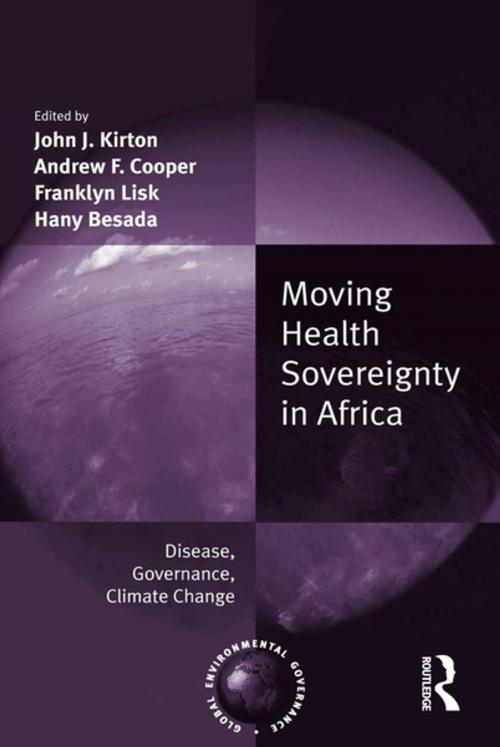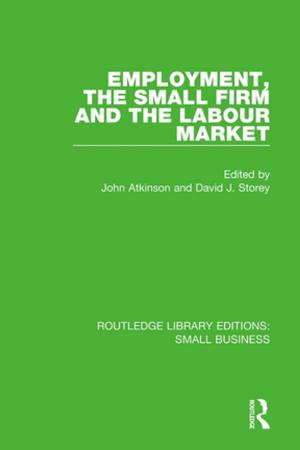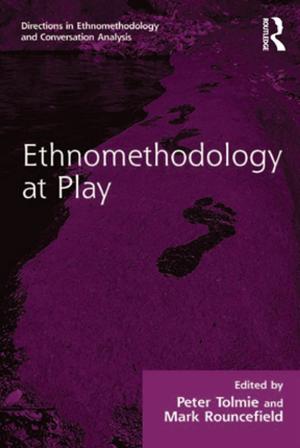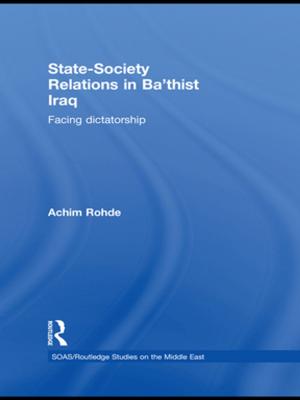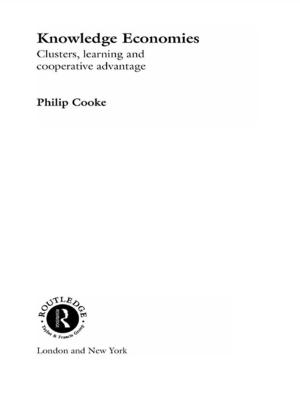Moving Health Sovereignty in Africa
Disease, Governance, Climate Change
Nonfiction, Health & Well Being, Medical, Social & Cultural Studies, Political Science| Author: | Andrew F. Cooper, Hany Besada | ISBN: | 9781317093787 |
| Publisher: | Taylor and Francis | Publication: | April 15, 2016 |
| Imprint: | Routledge | Language: | English |
| Author: | Andrew F. Cooper, Hany Besada |
| ISBN: | 9781317093787 |
| Publisher: | Taylor and Francis |
| Publication: | April 15, 2016 |
| Imprint: | Routledge |
| Language: | English |
Today’s era of intense globalization has unleashed dynamic movements of people, pathogens, and pests that overwhelm the static territorial jurisdictions on which the governance provided by sovereign states and their formal intergovernmental institutions is based. This world of movement calls for new ideas and institutions to govern people’s health, above all in Africa, where the movements and health challenges are the most acute. This book insightfully explores these challenges in ways that put the perspectives of Africans themselves at centre stage. It begins with the long central and still compelling African health challenge of combating the pandemic of HIV/AIDS. It then examines the global governance responses by the major multilateral organizations of the World Bank and the World Trade Organization and the newer informal flexible democratically oriented ones of the Group of Eight. It also addresses the compounding health challenge created by climate change to assess both its intensifying impact on Africa and how all international institutions have largely failed to link climate and health in their governance response. It concludes with several recommendations about the innovative ideas and institutions that offer a way to closing the great global governance gaps and thus improving Africans’ health and that of citizens beyond.
Today’s era of intense globalization has unleashed dynamic movements of people, pathogens, and pests that overwhelm the static territorial jurisdictions on which the governance provided by sovereign states and their formal intergovernmental institutions is based. This world of movement calls for new ideas and institutions to govern people’s health, above all in Africa, where the movements and health challenges are the most acute. This book insightfully explores these challenges in ways that put the perspectives of Africans themselves at centre stage. It begins with the long central and still compelling African health challenge of combating the pandemic of HIV/AIDS. It then examines the global governance responses by the major multilateral organizations of the World Bank and the World Trade Organization and the newer informal flexible democratically oriented ones of the Group of Eight. It also addresses the compounding health challenge created by climate change to assess both its intensifying impact on Africa and how all international institutions have largely failed to link climate and health in their governance response. It concludes with several recommendations about the innovative ideas and institutions that offer a way to closing the great global governance gaps and thus improving Africans’ health and that of citizens beyond.
